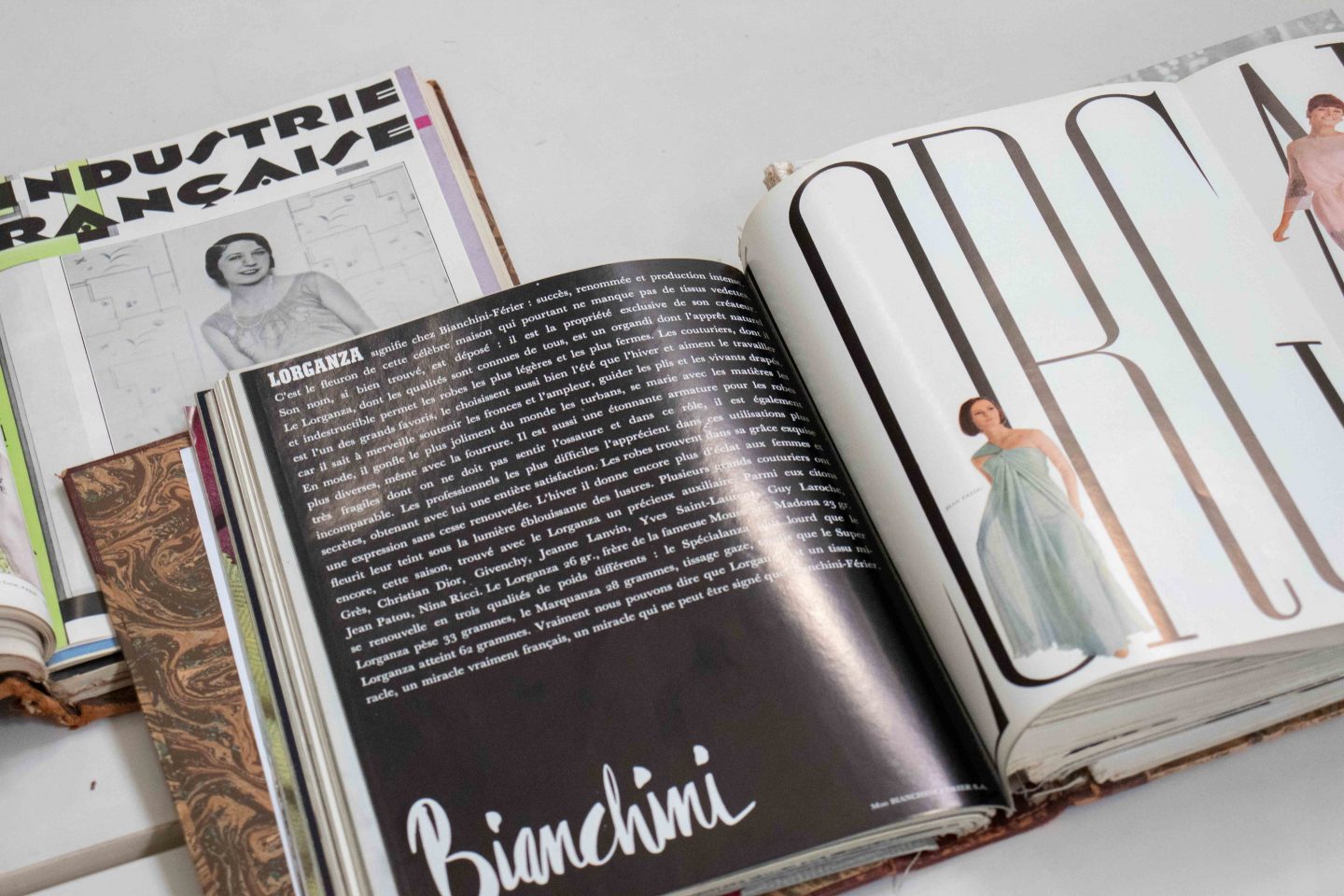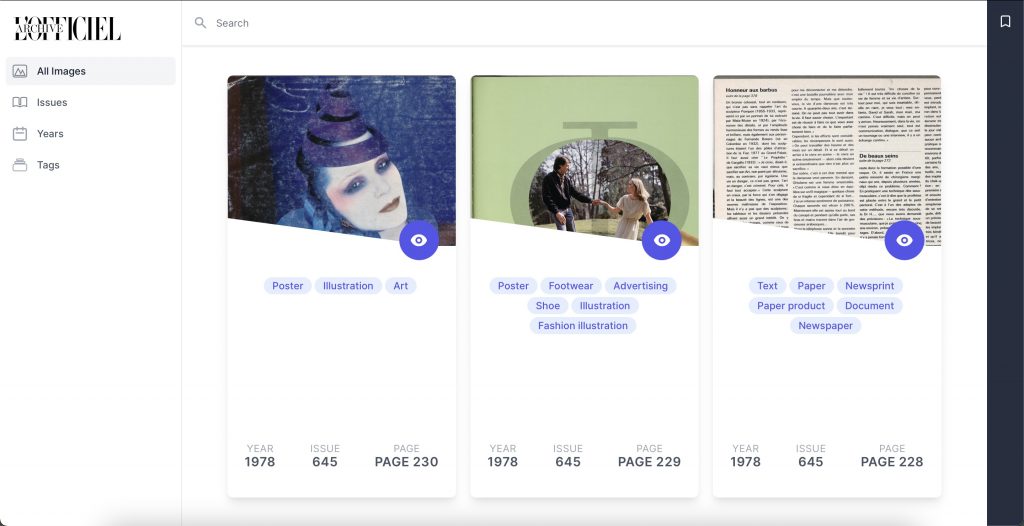
Experiencing the digital archive: L’Officiel and MAFS collaboration
The MA Fashion Studies Year 1 students managed to continue their research for the project in collaboration with L’Officiel also during times of confinement, all thanks to the access provided to the magazine’s digital archive.

Digging into a digital archive for the first time was for sure a unique experience: it was crucial for students to be able to continue their work from home and to present it directly to the head offices of L’Officiel. Each of them had the opportunity to browse the magazine’s pages from the year of its foundation in 1921 to the most contemporary issues, and to have a concrete sense of how a paper magazine has evolved in almost a century of history. The digitalization of the magazine’s numbers is crucial in understanding the value of different types of media nowadays: it presented itself as a great way for students to reflect on the evolution of the fashion industry and its means of communication and to meditate on how all these elements create new environments for discussion.
For the Fashion Systems and Global Perspectives course, instructed by MAFS Faculty Morna Laing, students have been asked to reflect on a particular image, spread, page or figure they encountered during their research and to develop a paper that reflects on and analyses this fragments from the archive. It is interesting to see how different periods taken in consideration during the research phase have transformed into unexpected topics.

The first two decades for example, were a source of inspiration for Ilaria Trame, with her paper entitled “Parisienne in Paris and @parisiensinparis”, comparing the figure of the Parisienne depicted by L’Officiel in the 30s and the contemporary version of this figure, caught by the lens of the Instagram profile @parisiensinparis, expanding our vision of this mythic figure into more than the white-heterosexual-married woman. Focusing on the same decades, Noyonika Sircar is linking Paris to Hollywood in her analysis, and how the latter influenced the making and display of Parisian Couture in the pages of the magazine.
Proceeding with the second post-war period, Renata Hernández is drawing a comparative analysis between the reconstruction of the French fashion system in 1945 and today’s system caught in the contemporary midst of a pandemic. Fousing on the textile industry, Aishwarya Pureti is selecting advertisements and articles as case studies and analysing how the textile industry transitioned from war to post-war times. Jaqueline Lopez takes instead an example from 1952’s issue entitled “L’Heure De Cocktail”, and discusses topics of time: how the repetitive idea of the “new”, and the specific representation of women related to this idea in the fifties contribute to a capitalistic view of society.
Ayaka Kitagawa moves toward the sixties period with her paper “Material to Myth: Displaying the Transition from Haute Couture to Ready-to-wear”, showcasing how L’Officiel mirrored the introduction of this new fashion revolution.
Considering instead more recent times, Mary Kelleher deals with the reception and representation of Japanese designers in L’Officiel during the Nineties, and their introduction to the French Fashion System, discussing issues of “otherness”, orientalism and globalisation. Stephanie Lever analyzes Moschino advertisements in the the first half of the 1990s as a mean to subvert the fashion system and the fashionable postmodern condition.
Focusing on early 2000s, Jessica Clark is looking at “ The Evolution of Street Style in L’Officiel” exploring how street style was first captured and how it evolved specifically throughout its pages, questioning how the magazine used street style as a mean to be agents for nationalism and exclusion.
Whether it is about questioning the construction of la Parisienne, the evolution of street style, the representation of nationalism or the fashion system in times of crisis, this project has helped students put in practice what they have learned, working with the theoretical tools learnt in class to unpack a specific fashion case study.